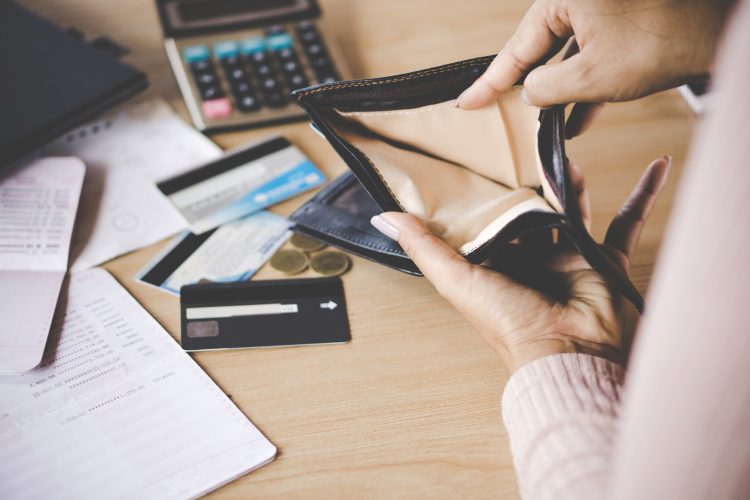Over indebtedness has dangerous consequences on one’s financial health as well as their mental health. However, sometimes over-indebtedness can be difficult to pinpoint — how much is actually too much and what can you do to avoid it?
Here’s what the banks are saying
I’m trying to figure out if you have too much debt it’s important to look at your total debt servicing ratio. Your total debt servicing ratio (TDSR) is the amount of debt you have in proportion to your income. Banks usually say that if all of your debt payments including your line of credit, mortgage payments, credit card payments, etc., exceeds 40% of your gross monthly income (Income before taxes), the newer over indebted. In fact, if your TDSR exceeds 40%, lenders will not want to lend you money because they would consider you too risky. Those that do have a TDSR of 40% and over also tend to have lower credit scores. This is due to the fact that the amount of debt one has is one of the most important contributors to low credit scores. Therefore, the greater the debt, the lower the score.
You rely too much on credit
One of the most obvious signs that you have too much debt is that you rely too much on your credit cards. Those that are over indebted will not have any cash on them, the time for them to have to make a payment, they will usually think something along the lines of: “I’ll make up for it on the next paycheque”. This is a dangerous line of thought. It is the kind of thinking that will repeat itself on a monthly basis. The more it repeats itself, the deeper into debt you will fall. When you find yourself in this kind of situation, either find a way to decrease your monthly expenses or increase your income.
You don’t know how much you owe
Many people that are over indebted tend to ignore their debts. This usually means that they have no clue as to how much they actually owe. It’s extremely important that you constantly check your accounts in order to keep track of your financial situation. If you are unaware of the amount of debts that you have, you will likely keep spending your money.
It’s understandable that you might not want to face your debts — it can be a pretty scary situation to find yourself in. Denial is much easier than having to take the steps to better your financial situation. However, the problem will never go away unless you face it. The sooner you come to terms with your debts, the sooner you will take the steps to fix it, and the sooner you will free yourself of your financial burden.
If you manage to overcome your fear of coming to terms with your debts, the next best thing to do would be to set a time during the day to check your accounts. Do this every day so that you never lose track of your money.
You’re feeling anxious and/or depressed
According to the Mental Health Foundation, “Mental health and money are connected. Mental health problems can make it harder to earn and manage your money, and it can trigger or worsen conditions such as anxiety, depression and stress”. This makes those better dealing with debt much more likely to experience anxiety and/or depression. With anxiety and depression comes lack of motivation, lack of sleep, and inability to remain focused. These are all symptoms that can make it more difficult for you to rectify your situation. It may even make it more difficult for you to get your work done, which can leave to burn out or if even job loss. So if you’re feeling stressed whenever you’re thinking about money or having to repay your creditors, you may be over indebted.
You avoid people
One of the ways in which you can tell when a person is indebted is that they will no longer make themselves available. People who used to go out very often will now distance themselves from others and the rest of the world. If you see that a friend or family member is becoming more and more reclusive, they may be dealing with a large amount of debts. This is likely due to the fact that most people who are dealing with debt are too embarrassed to talk about it. They would rather tell you that they’re too tired to go out then tell you that they can’t afford to do so. If you find yourself lying to loved ones in order to avoid telling them about your financial situation, that is a sure sign that you were over indebted.
What you can do
If you find yourself relating to all of the above, seek help as soon as you can. This is especially true if you’re dealing with anxiety and depression concerning your financial situation. Either contact a mental health professional to help you through your emotions, or contact a licensed insolvency trustee who will help you find the best solution for your financial situation. And LIT will ensure that you rid yourself of your debts so that you never have to deal with the shame, embarrassment, anxiety and/or depression that comes with over indebtedness. Remember that the sooner you seek help, the sooner you will feel that heavy load lift off of your shoulders.


